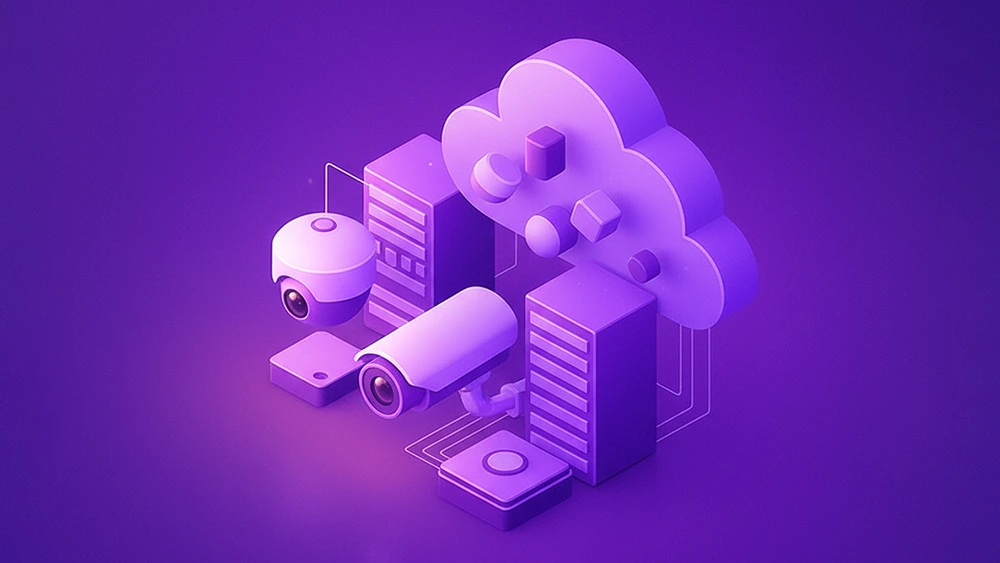Choosing the right infrastructure for your workloads can significantly impact performance, cost, and scalability. Rumble Cloud provides a dedicated pool of virtual resources, including assigned tier memory aligned to dedicated CPU. With ‘build your own’ flexibility, you can compose your compute and storage needs to fit your unique workload requirements. All cloud services packages include dedicated AMD EPYC™ processors, providing powerful and scalable compute resources for a variety of use cases. Learning more about what you can run on these processors, starting with 2 vCPUs and scaling up to larger configurations, can help you leverage the power of Rumble Cloud to suit your cloud deployment goals.
Efficiently use 2 vCPUs
Web hosting and development environments
A configuration with 2 vCPUs is ideal for lightweight applications, such as web hosting and development environments. You can run multiple websites, small databases, and application servers with sufficient performance.
Example use cases
- Deploy a WordPress site with a MySQL database and a caching layer.
- Set up development and staging environments for small to medium-sized applications.
- Host several microservices, each handling a specific function within a larger application architecture.
Lightweight data processing
2 vCPUs are also suitable for lightweight data processing tasks, such as data collection, preprocessing, and basic analytics.
Example use cases
- Run data collection agents and scripts that gather and preprocess data before sending it to a central repository.
- Perform simple data analysis tasks using tools such as Python and R.
Expanding capabilities with 4 vCPUs
Medium-sized applications and databases
With 4 vCPUs, you can handle more demanding workloads, including medium-sized applications and databases. This configuration offers a balance between performance and cost.
Example use cases
- Run a full-fledged e-commerce platform with higher traffic and transactional loads.
- Deploy relational databases such as PostgreSQL or MySQL for medium-sized applications, ensuring responsive performance.
- Host content management systems (CMS) platforms that support extensive content and user interactions.
Virtual desktops
4 vCPUs are well-suited for virtual desktop infrastructure (VDI), providing users with responsive and reliable virtual desktops.
Example use cases
- Deploy virtual desktops for remote workers, offering them a seamless experience for standard office applications.
- Provide virtual environments for software development and design, supporting tools such as IDEs and graphic design software.
High performance with 8 vCPUs
Large-scale applications and services
Scaling up to 8 vCPUs enables you to run large-scale applications and services that demand significant processing power and memory.
Example use cases
- Host high-traffic websites and web applications that require robust backend services and databases.
- Implement ERP systems that support various business processes, such as finance, HR, and supply chain management.
- Perform large-scale batch processing tasks, such as data transformation, ETL (extract, transform, load) processes, and complex analytics.
Machine learning and AI
8 vCPUs provide the necessary compute power for machine learning and AI workloads, including model training and inference.
Example use cases
- Train machine learning models using frameworks such as TensorFlow, PyTorch, and scikit-learn.
- Deploy inference engines that provide real-time predictions and analytics.

Scaling beyond 8 vCPUs
Advanced computational tasks
Configurations with more than 8 vCPUs are ideal for advanced computational tasks, such as scientific simulations, large-scale data analytics, and high-performance computing (HPC).
Example use cases
- Run simulations in fields such as physics, chemistry, and biology, leveraging the computational power to process complex calculations.
- Analyze vast datasets using big data frameworks such as Apache Hadoop and Spark.
- Implement high-performance computing (HPC) workloads that require extensive compute resources for tasks such as weather modeling, genomic analysis, and financial modeling.
Enterprise-grade applications
Large configurations support enterprise-grade applications and services that need high availability, scalability, and performance.
Example use cases
- Deploy critical enterprise applications such as customer relationship management (CRM) and supply chain management (SCM) systems.
- Set up data warehouses that store and analyze large volumes of business data, supporting business intelligence and reporting.
- Provide real-time analytics and decision support systems that process and analyze data streams in real-time.
The bottom line
All Rumble Cloud services packages offer dedicated AMD EPYC™ processors. ‘Build your own’ service package flexibility enables you to choose the right configuration for your specific workloads. From our Starter package with 2 vCPUs and scaling up to larger setups, Rumble Cloud provides the flexibility and power needed for a wide range of applications.
With our simple slider feature, you can select your desired combination of vCPU, RAM, and Block Storage, creating a personalized solution that perfectly aligns with your workload demands. Whether you’re running compute-intensive applications, handling massive datasets, or managing complex workflows, Rumble Cloud ensures that you have the resources you need, exactly when you need them.
Explore Rumble Cloud today and unlock the full potential of dedicated AMD EPYC™ processors for your workloads.
AMD, the AMD Arrow logo, and combinations thereof are trademarks of Advanced Micro Devices, Inc.


